Our customers aren't just numbers—they're a priority

At incident.io, “We care about our customers” isn’t just a talking point. It’s a core part of how we operate.
Whether it’s a big feature request or a small bug fix, we’ve been intentional about making sure that customers always feel heard and seen—no matter the ask.
But it’s not just that. We have regular touch points with users to make sure that the product we’re building is what they need in order to have the best incident response experience possible.
Support isn’t just on one team though.
“Everyone talks to customers” are words every person joining incident.io will read. Here, providing a stellar experience isn’t a job solely for customer support, it’s a shared responsibility—whether it be product, marketing, sales, or the founding team.
If you scan the incident.io G2 page, you’ll see evidence of exactly that. We even came in #1 in their Relationship Index for Spring 2024.
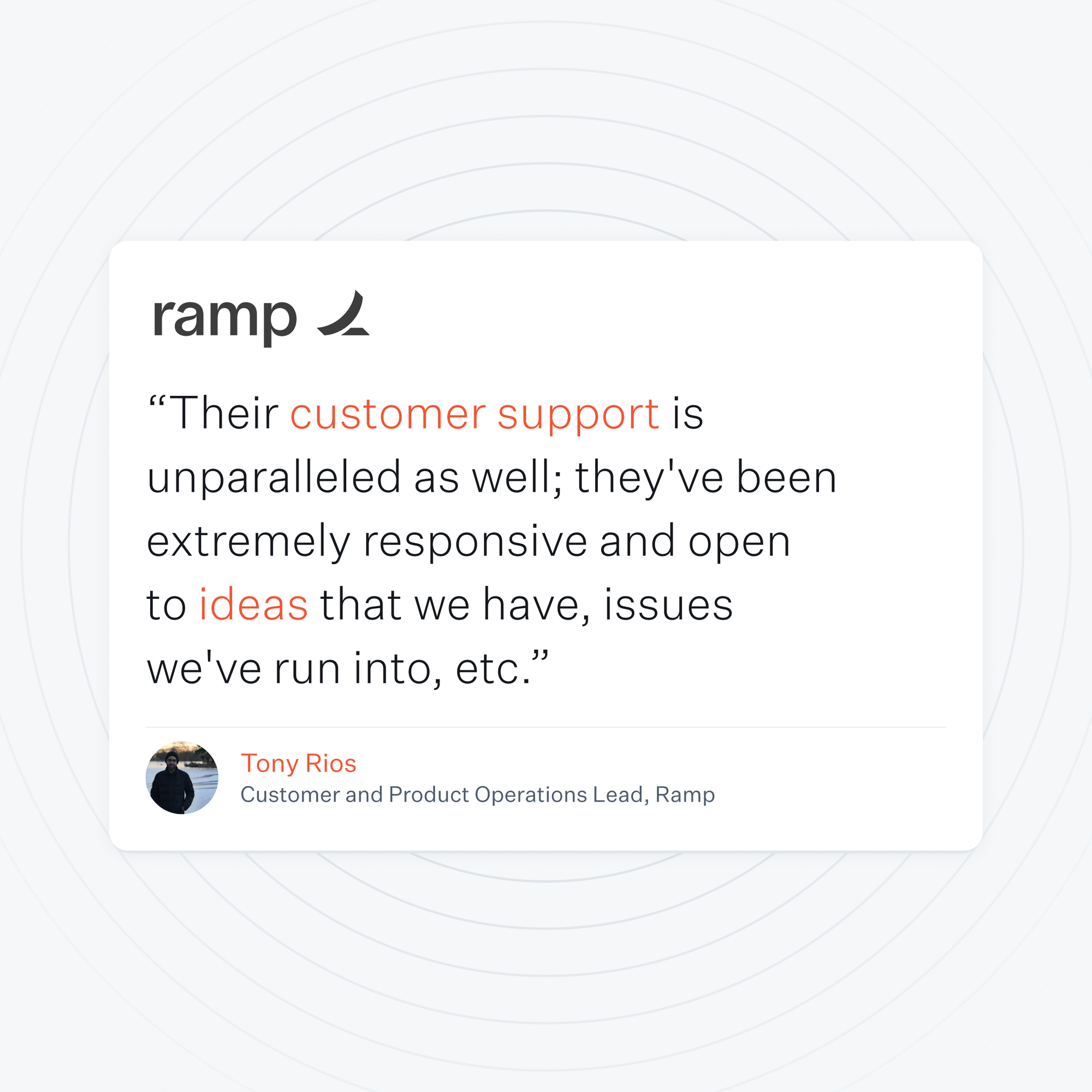
But why? Why do we focus on support so much? Really, it has nothing to do with incident response. Instead, it's because building strong partnerships allows everyone to win: customers trust us to help solve their problems, and in return we get their insights to help build a better product.
The unfortunate reality of the status quo
You’ve probably been in this situation before.
You’re several weeks into a long procurement process and, after many promises made and kept, you decide to adopt a new SaaS tool. The team has followed through on several requests—albeit after much delay—and you’re ready to be a full-time customer. The first few weeks are great and the team is showing a willingness to help you whenever they can.
But fast-forward a little bit and now, things are a bit different.
Feature requests are taking longer to come through, if at all. Bug fixes get acknowledged, but you get the feeling that they’re being chucked into an abyss of Jira tickets almost no one looks at.
“Thanks for raising this. We’ll take a look!” becomes a common response, with nothing coming from it.
That attentiveness and white glove service you got at the beginning of your engagement is gone and you’re left to fend for yourself.
APIs. Workarounds. You might as well have built your own tooling.
For many organizations, the above has defined their experience with SaaS. And now, the declaration of “We care about our customers” that they’re so used to hearing means less and less with every passing provider.
But at incident.io, things are different.
Here, we’ve been intentional about building a product for and with our customers. Whether you're an enterprise, or a 10-person startup, we care about your concerns all the same.
Support starts with a product-minded team
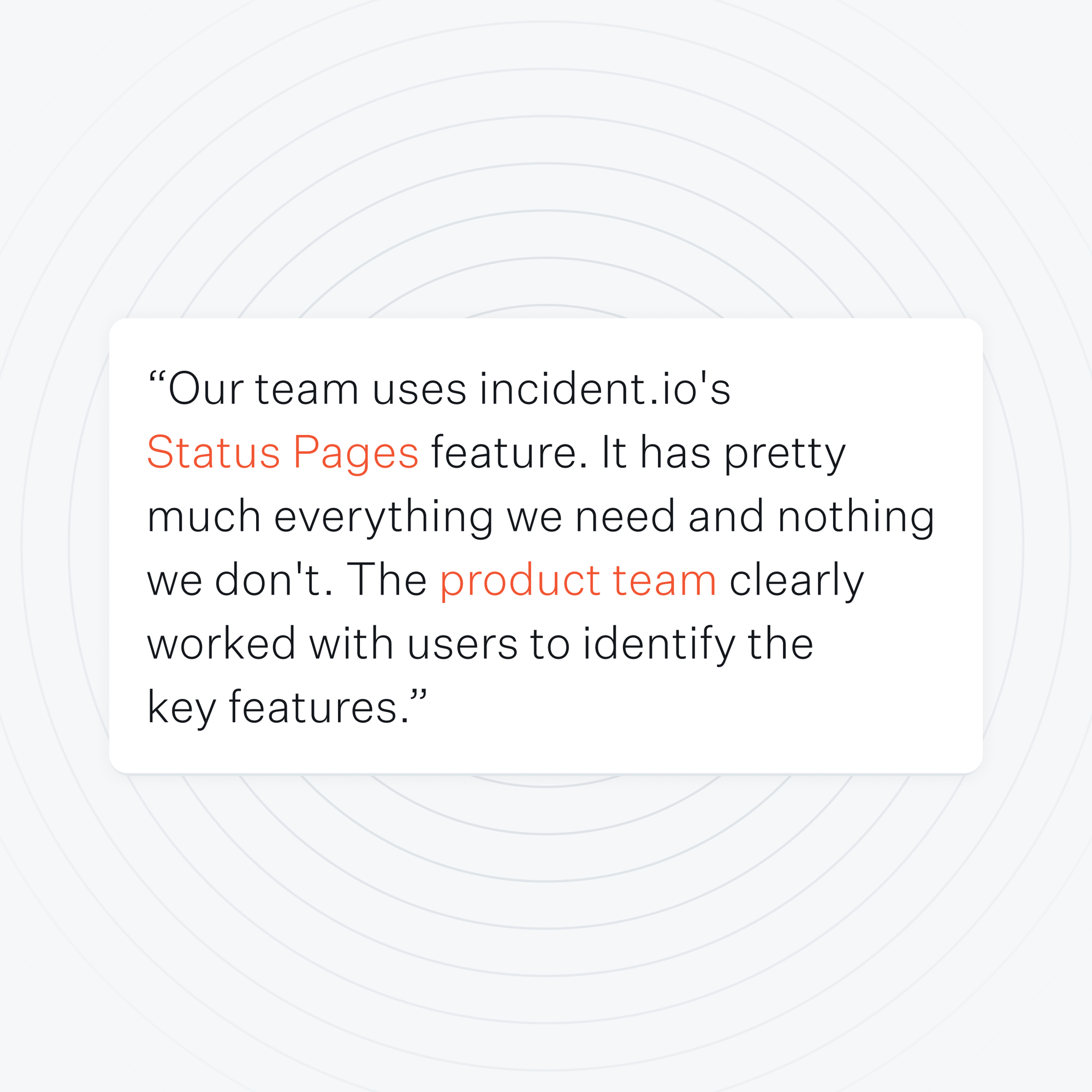
From the earliest days of incident.io, we’ve made it a point to prioritize good support at all levels.
The seeds of this start with how we hire.
Here, we don’t have Software Engineers—we have Product Engineers. These are folks that are not only proficient in building software, but they also have a knack for understanding what customers need.
They take the pain points they themselves have experienced and translate it into “bits of delight” as we like to call them. This allows us to constantly make everything feel better each day, from the biggest features, like On-call, to the smallest interactions with the product.
Our Product Engineers also interact with customers on a regular basis, so they’re able to stay tapped into feedback in real-time. If a customer raises a bug via Slack, it’s totally normal for an Engineer to jump into the thread, create a Linear ticket, and resolve that issue within minutes.
Nothing gets overlooked as insignificant or unimportant. Nothing is ever “Not my job.”
Support is about building relationships
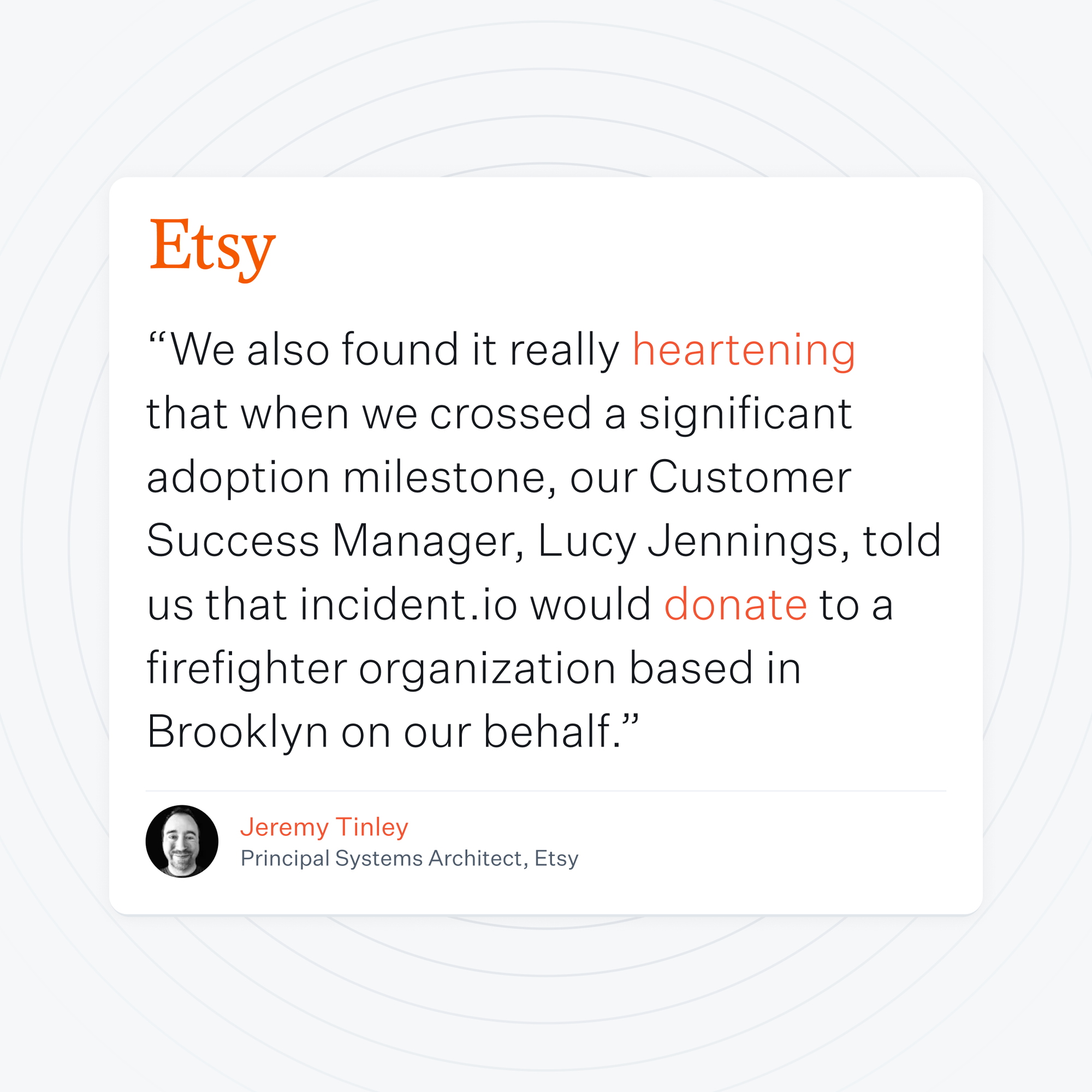
At the same time, we’re just as focused on building relationships with customers as we are about responding to bug fixes and feature requests. One tradition we’ve created is sending customers mementos when they reach certain milestones. A few we were particularly proud of:
- A few months ago, we sent a cake to Ramp when they crossed 5000 incidents
- When a customer became a parent, we sent them some incident.io onesies
- When Etsy crossed an adoption milestone, we donated to a firefighter organization in Brooklyn on their behalf
We try our best to make it clear that customers aren’t just numbers to us—they’re why we do what we do!

Support is about listening—and taking action
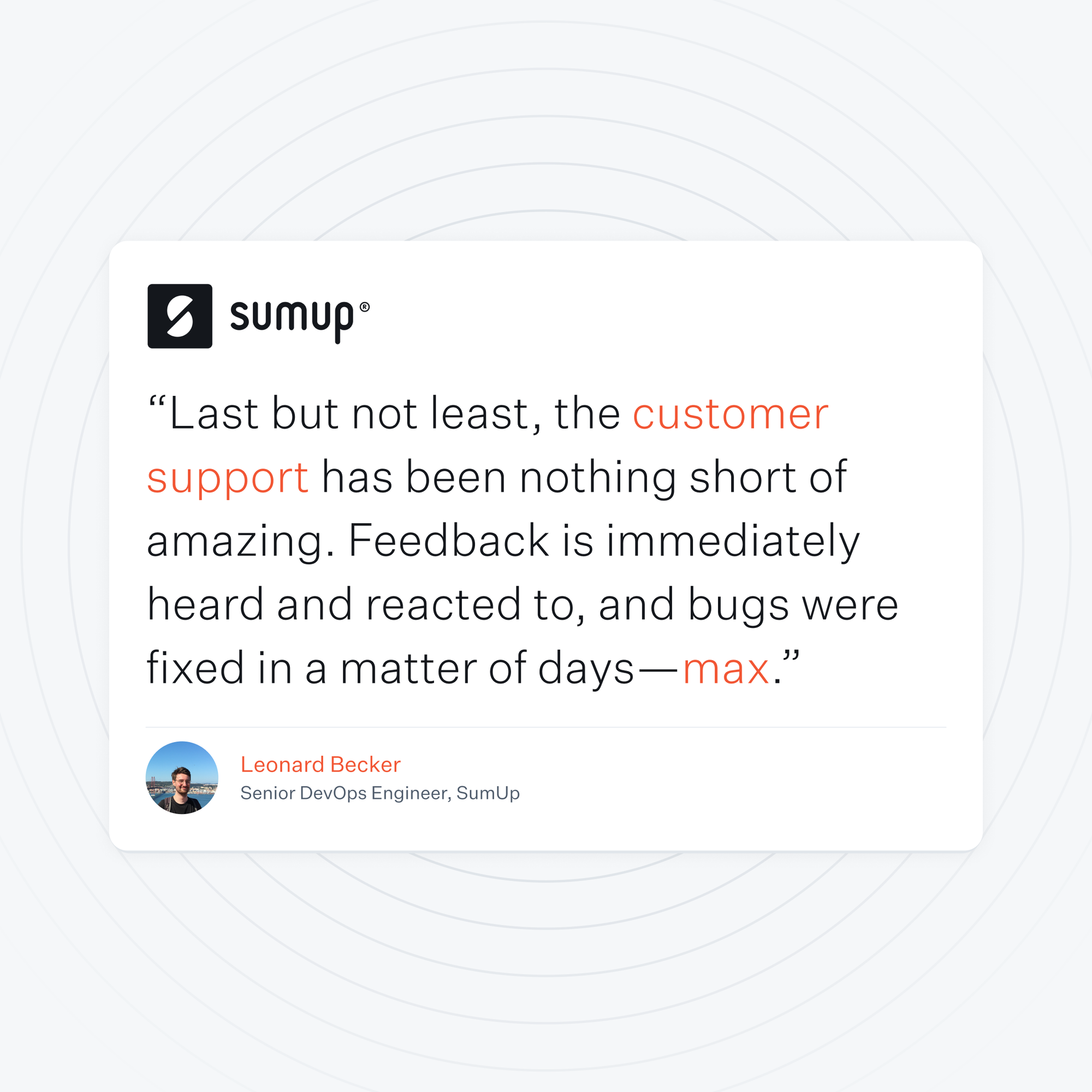
Bugs happen—but we’re deliberate about shipping fixes as quickly as possible. It’s common for a bug to get acknowledged and fixed in less than ~20. In some cases, the team will catch issues before customers do, reach out to them, and let them know that a fix has been deployed for a bug they haven’t even encountered!
But it goes beyond bug fixes.
Feature requests get actioned quickly, too. After our On-call launch, we received several integration requests that weren’t on our roadmap and turned them around within hours. The fastest? 22 minutes from request to production.
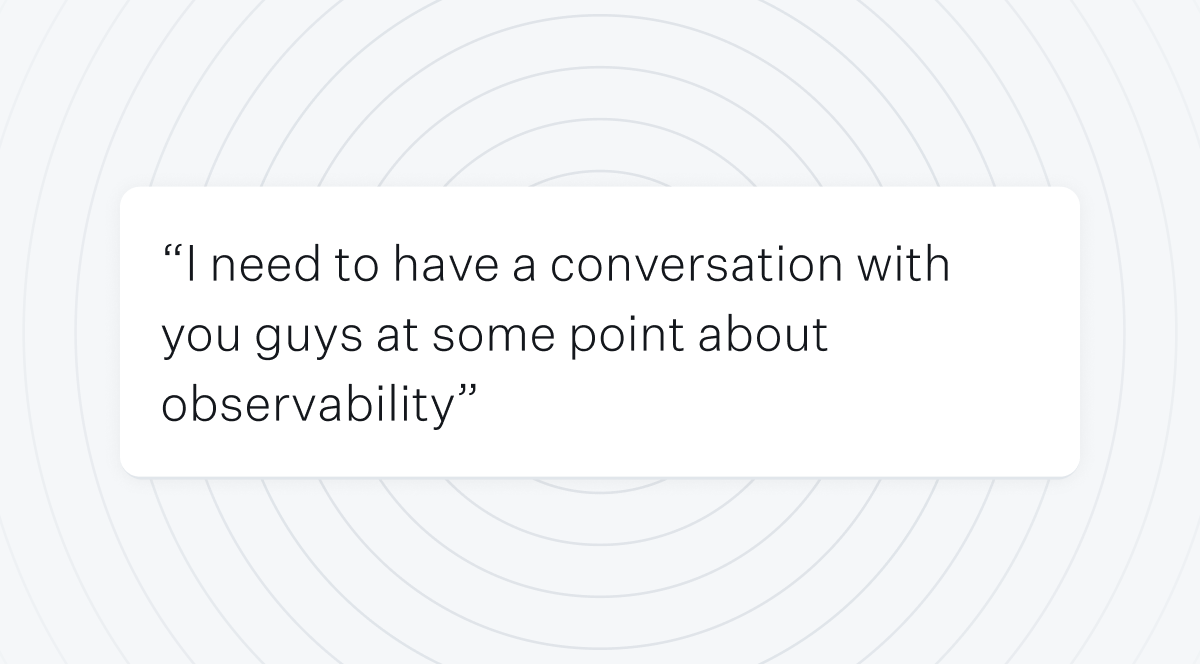
It’s all about building trust.
So whenever we get feedback from a customer, we don’t throw it into Linear and move on with our day—we action it.
Support is about having open lines of communication
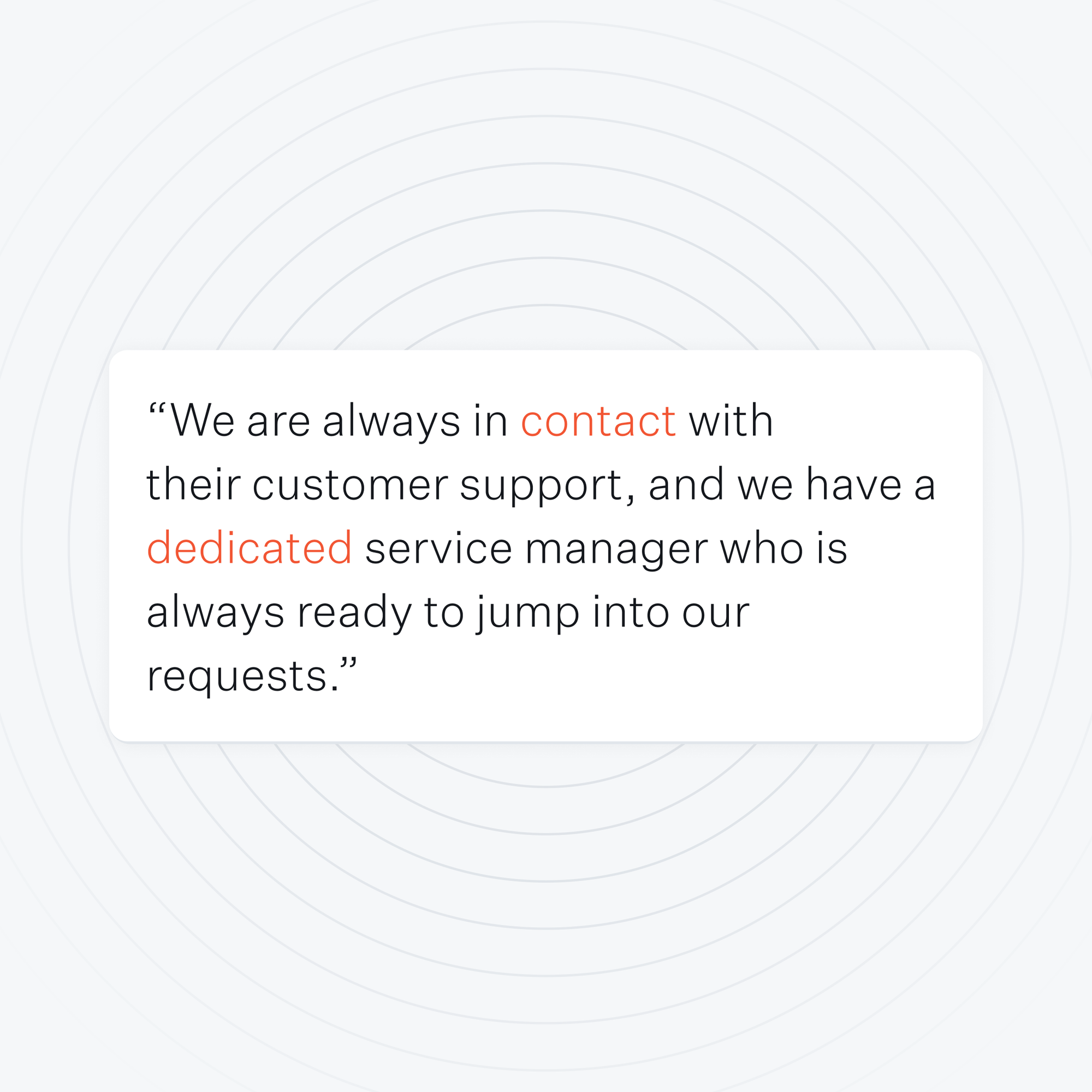
When customers are having issues, the last thing we want is for them to feel like they need to wait days for a fix. That’s why we offer dedicated customer support managers to funnel requests through to directly.
We also have Slack channel for teams as well. So whether you’re reaching out to a CSM, or dropping feedback into a channel, you can count on quick response times.
We’re just getting started
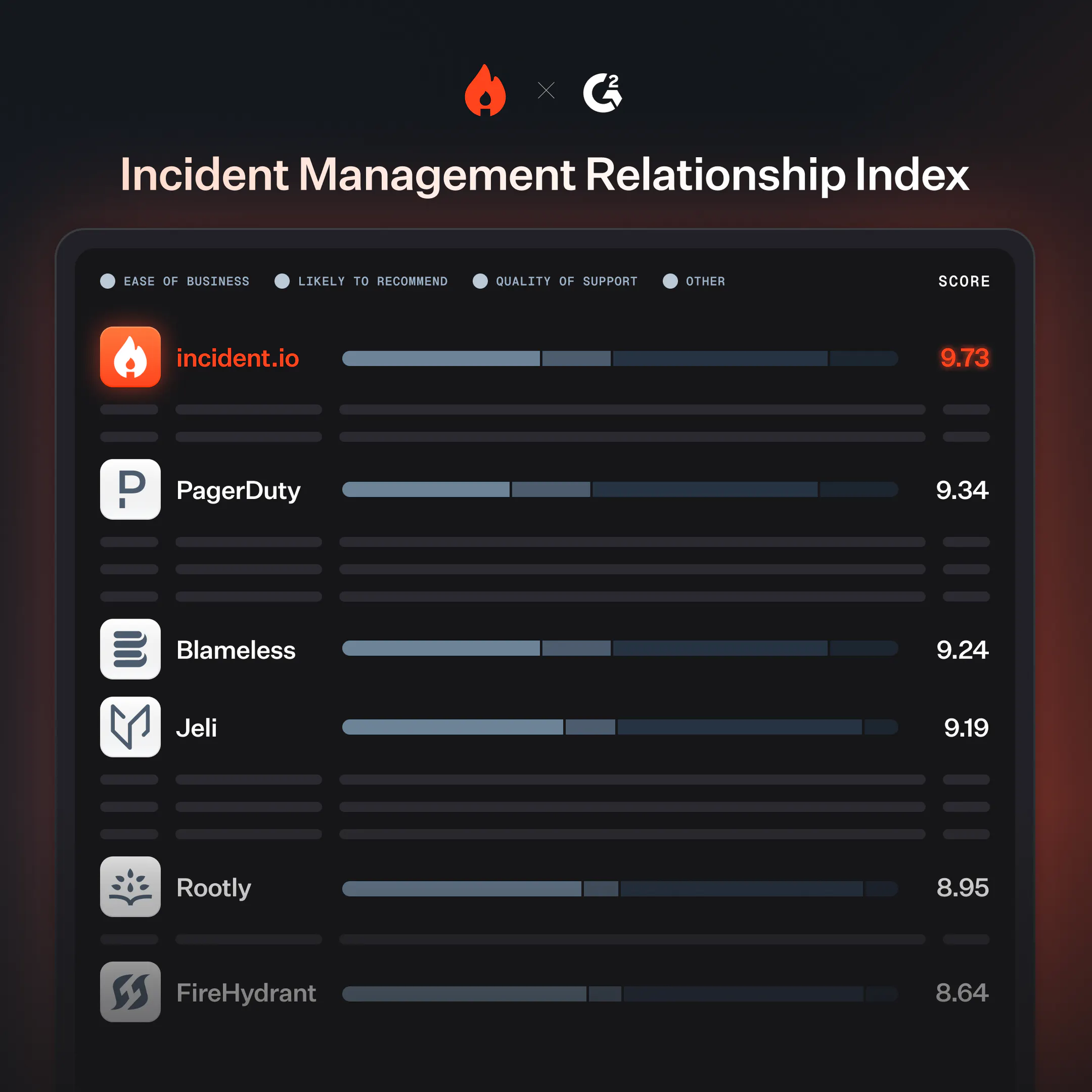
Whether you’ve dropped a review on G2, sent us feedback via Slack, LinkedIn or X, thank you for helping make incident.io better. Our work is just getting started, but based on your kind words, we feel we’re on the right track.
If you’ve run into any issues, or have an idea to make the platform feel even marginally better, please reach out! We’d be happy to action it as quickly as we can.

See related articles

incident.io is leading the charge in incident management for G2's Spring report
Recently, we were ranked #1 in G2's Relationship Index for incident management. Here's why we're so proud of this achievement.
 incident.io
incident.io
Our A, B, Cs of external communications
External communication is really important. But you have to make sure you’re hitting a few key bars before you ship things out into the world.
 Lisa Karlin Curtis
Lisa Karlin Curtis
Bridging the gap between Engineering and Customer Support during incidents
Why customer comms during an incident are so important - and how to get it right.
 incident.io
incident.ioSo good, you’ll break things on purpose
Ready for modern incident management? Book a call with one of our experts today.
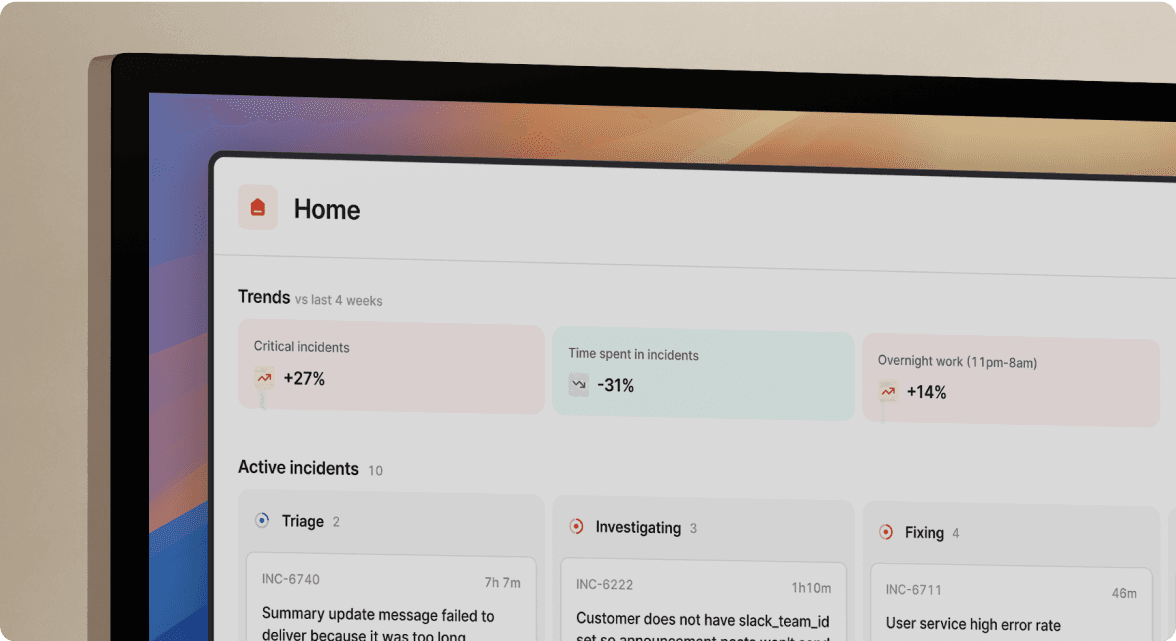
We’d love to talk to you about
- All-in-one incident management
- Our unmatched speed of deployment
- Why we’re loved by users and easily adopted
- How we work for the whole organization



